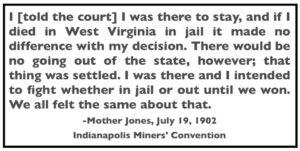 —————
—————
Hellraisers Journal – Sunday October 12, 1902
Mother Jones News Round-Up for September 1902, Part III
Found in Hiteman, Iowa, Supporting John P. Reese for Congress
From the Ottumwa Semi-Weekly Courier of September 30, 1902:
SHE ASKS FOR REESE VOTES
———-
”Mother” Jones Tells Miners to Elect
One of Their Number to Congress.
———-HER IMPASSIONED SPEECH AT HITEMAN
———-SHE APPEALS TO THE TOILERS TO AWAKEN
AND SHOW THE WORLD THAT THEY ARE ABOUT TO
“ASSERT THEIR RIGHTS TO A FAIR SHARE OF EARTH’S RICHES.”
———-
In an impassioned address in which she sought to show the evils of the injunction, Mother Jones, the woman trades unionist and socialist, appealed to the miners and citizens of Hiteman Saturday afternoon to elect John P. Reese to congress, in order that he might introduce a bill taking from the federal courts the right to issue the injunction. She cited the effect the “one-man instrument,” as she called it, has had upon the strikers in the West Virginia coal fields, and stated that the strike would not have lasted more than two weeks if it had not been for the injunction. A short address was made by John P. Reese, who was chairman of the meeting, prior to Mother Jones’ speech.
In introducing Mother Jones to the audience Mr. Reese took occasion to thank the people of Hiteman and the members of the local miners’ union especially for the support they have given him during his term as president of the district miners’ organization, from which he is about to retire in order to commence his fight against Hon. John F. Lacey for the election to congress to represent the sixth district of Iowa.
Mother Jones is an avowed socialist. She points to the great day which she says is surely approaching, when the laboring millions shall rise in their might and claim a just share of the riches which they have produced and turned over to their employers. She says that conditions are leading up to a great climax. Her speech, which had much to do with the evils which she claimed were caused by the injunction, ended with a long appeal for support for Mr. Reese in his candidacy.
Mr. Reese Talks.
The meeting was to have been a part of the picnic planned by the people of Hiteman, to take the place of a Labor Day celebration, but owing to the inclement weather the big event was declared off. However, the people were not to be cheated out of an address by Mother Jones, and consequently they held a meeting at the opera house in Hiteman in the afternoon. The first address was by John P. White, of Oskaloosa, secretary-treasurer of the district organization of the United Mine Workers. During his speech Mr. Reese and Mother Jones arrived.
James Baxter, of Hiteman, was temporary chairman of the meeting, and at the completion of Mr. White’s speech he introduced John P. Reese as the permanent chairman. Mr. Reese took charge of the meeting, [and addressed] his former associates, the residents of the town where he resided as a coal miner a few years ago; and from which he went to take his position as president of the district miners’ union…..
[Mr. Reese said, in part:]
I will say that whatever the future may hold in store for me, I assure the miners of Hiteman and the citizens of this town that you will find that I will continue to be one of you in reality, and that I will continue to hold my membership in your union as long as I am eligible.
Now I want to introduce to you the only miner who wears skirts; the only miner who is allowed to belong to every local in the country at one time; the only miner who does not wear a pit cap; a woman who has the respect and love of every miner in America; a woman who, before she has finished her speech, will convince you that the mission of labor is a holy one; that the labor organizations have accomplished more progress during their existence than has any other similar organization during the same length of time during the history of the world. Ladies and gentlemen, I take great pleasure in introducing to you “Our” Mother Jones.
Mother Jones’ Address.
A round of enthusiastic applause greeted Mother Jones as Mr. Reese closed his speech, and she bowed in acknowledgement. After a selection by the band, she advanced to the front of the stage. Her hearers were interested because of her statements, although the speech in itself is not connected throughout. She said:
Mr. Chairman and Fellow-Toilers: —This is my first visit among you. It is not my first nor my last visit among workers. Away back among the ages we find that from the time the human race left the cradle and began to learn to talk there was planted in the bosom of mankind a desire to advance, to march forward; a desire for greater, nobler things. That desire has followed us down the stairway of time and has each day pressed on until the toilers are awaking now in such a way as the world never knew. Today we are confronted with conditions never known before.
Class Separation.
The people are being separated. Events are bringing to the mind the deep thinker of today the realization that there is a great evolution, a great revolution, going on in the world. Society is divided. The lines are closely drawn. On one side is a handful of human beings with all the wealth the human race has created in ages in their hands. On the other side is a multitude of people, robbed, oppressed, downcast, but pleading for the time when the human race shall possess its own. We look back into history and as we realize what the conditions were, and we thank Providence for the light that is beginning to dawn upon civilization…..
[Mother Jones on Trial in West Virginia]
As soon as I entered the court room I told my comrades [fellow U. M. W. organizers] that we were all convicted and that we might as well stand up and be sentenced…
The judge [John J. Jackson] asked me what right I had to come among the miners of West Virginia and disturb them. I answered him that I was a citizen of the United States and as such that I had a right to go anywhere in the country that I pleased. That judge was cornered and he asked me nothing more. But in the closing argument of the prosecuting attorney the most dangerous statement was made. It meant more than he, or anyone else but myself, probably, realized.
Points Out Danger.
He said in his argument to the court: “Owing to the fact that this is the most dangerous woman in the United States today, and owing to the fact that she can go among the miners and commence a disturbance at any time, if she will consent to leave the state of West Virginia and stay away, I would suggest that the court should have mercy on her.” Leave the state never to return! Mind you what that meant. Think of a public official making a statement of that kind…..

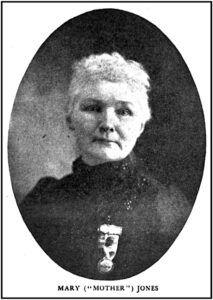
 —————
—————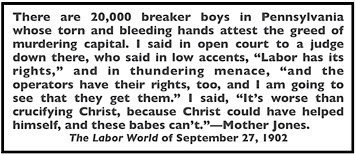 —————
—————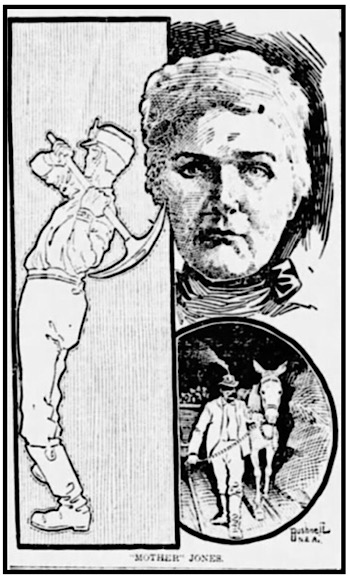
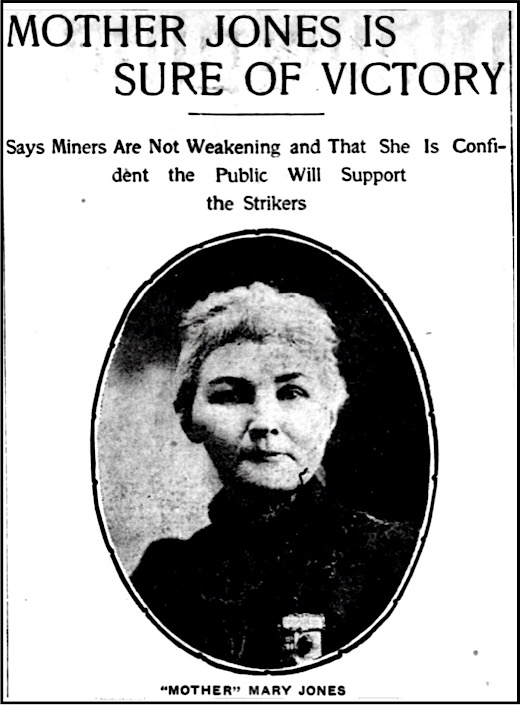
 —————
—————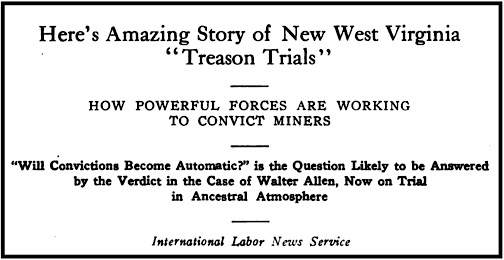
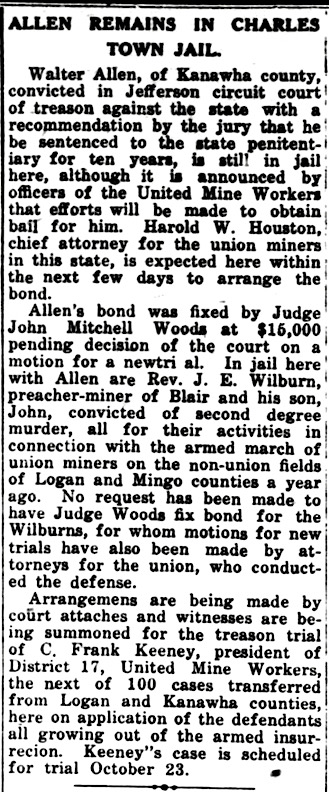
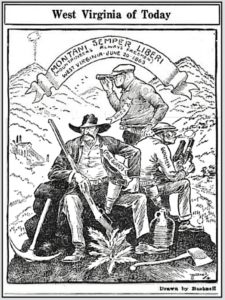
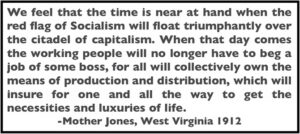 —————
—————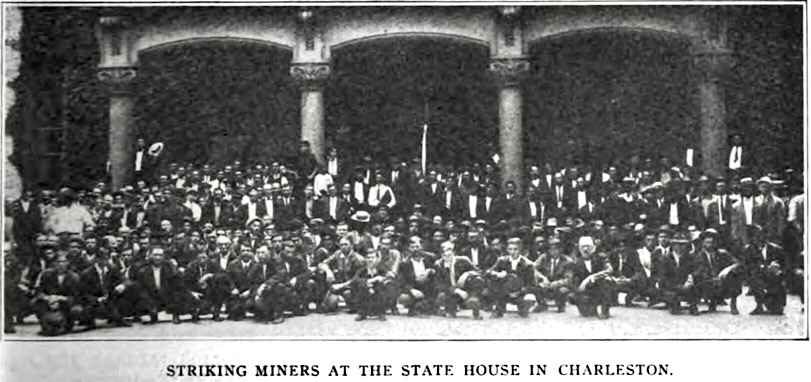
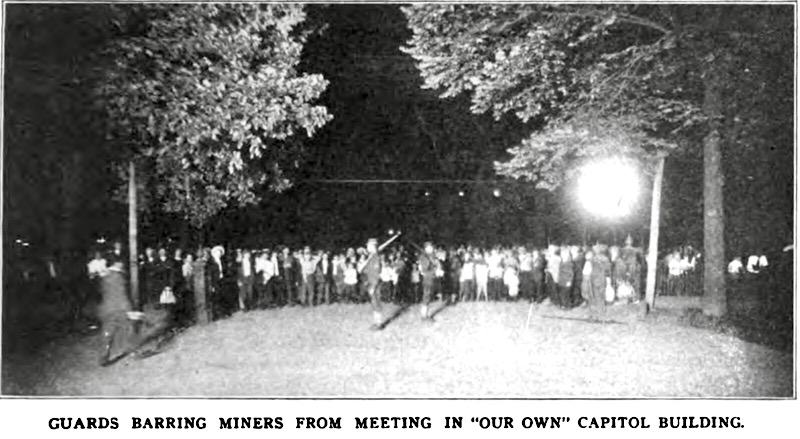
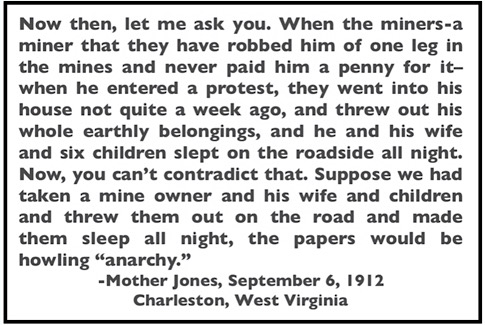 —————
—————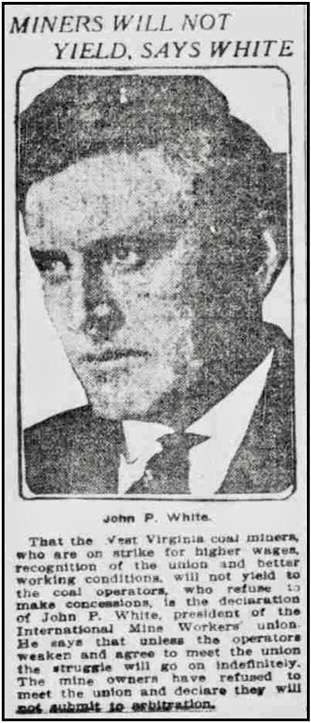
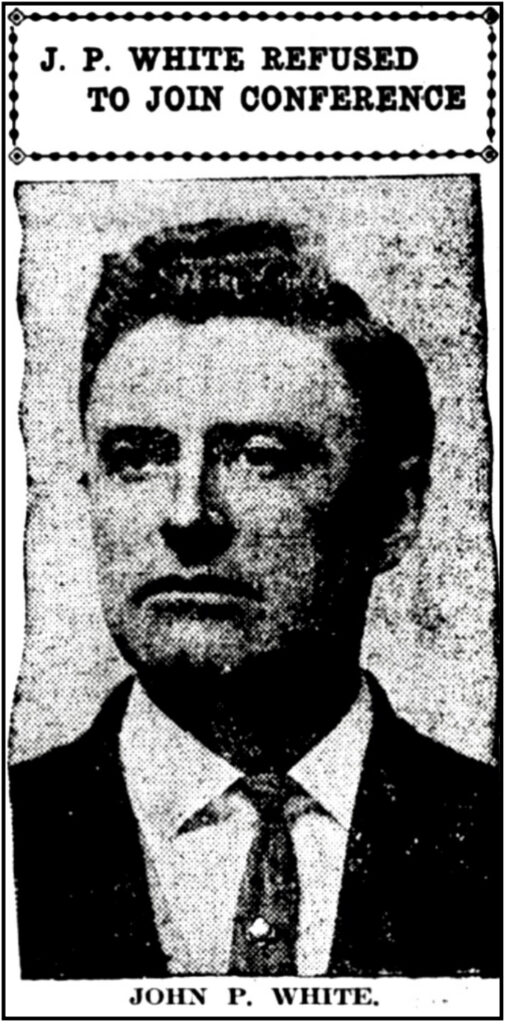
 —————
—————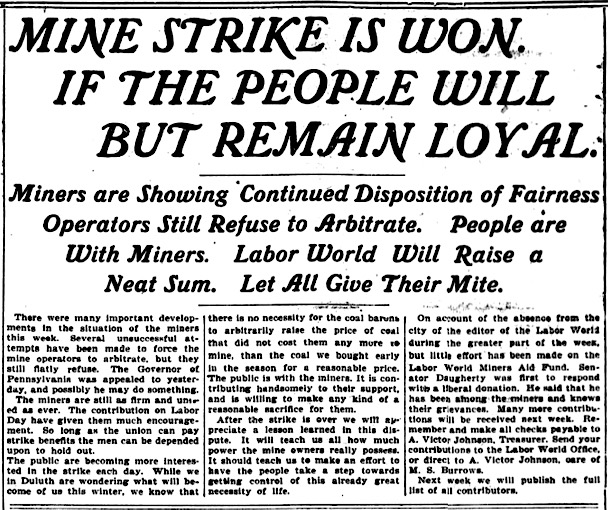
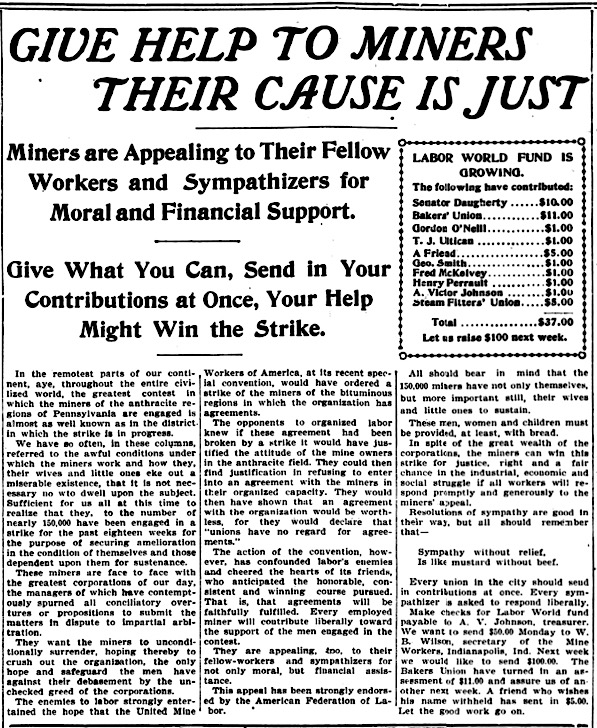
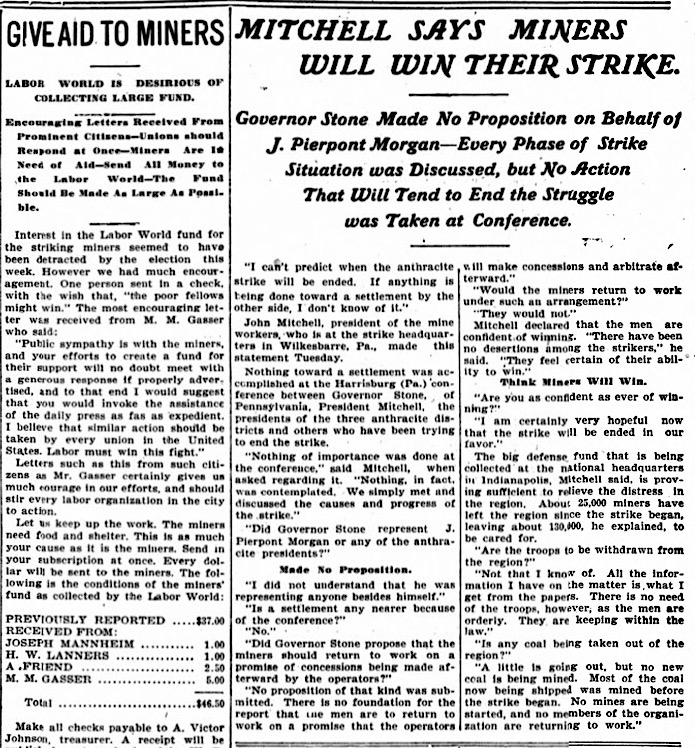

 —————
—————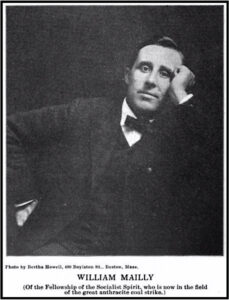
 —————-
—————-